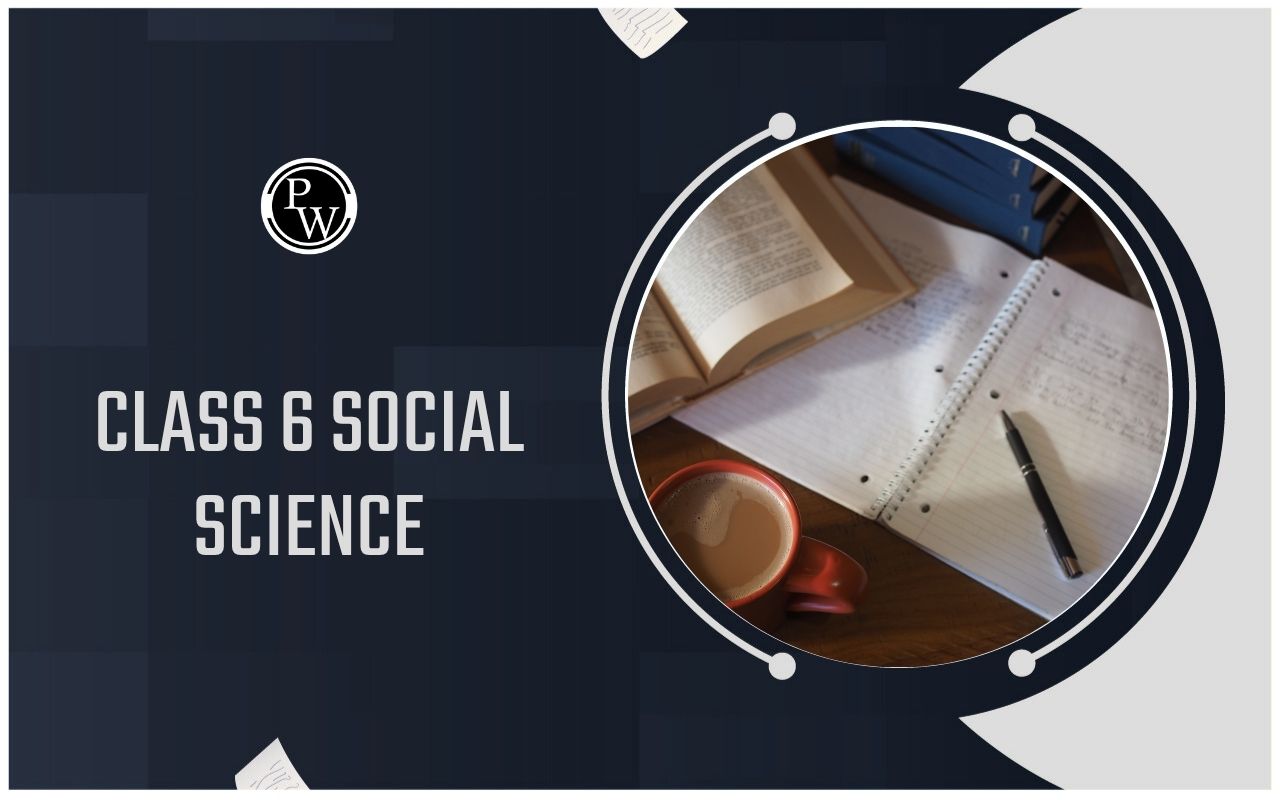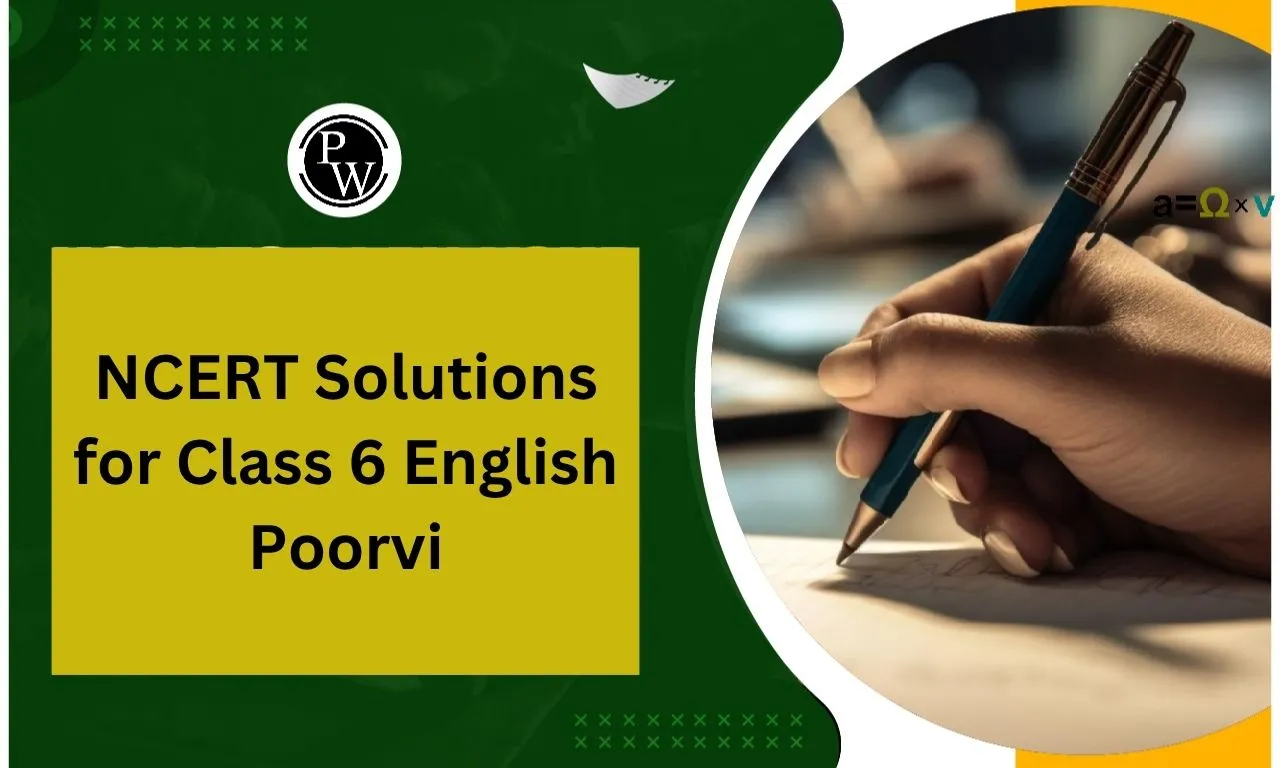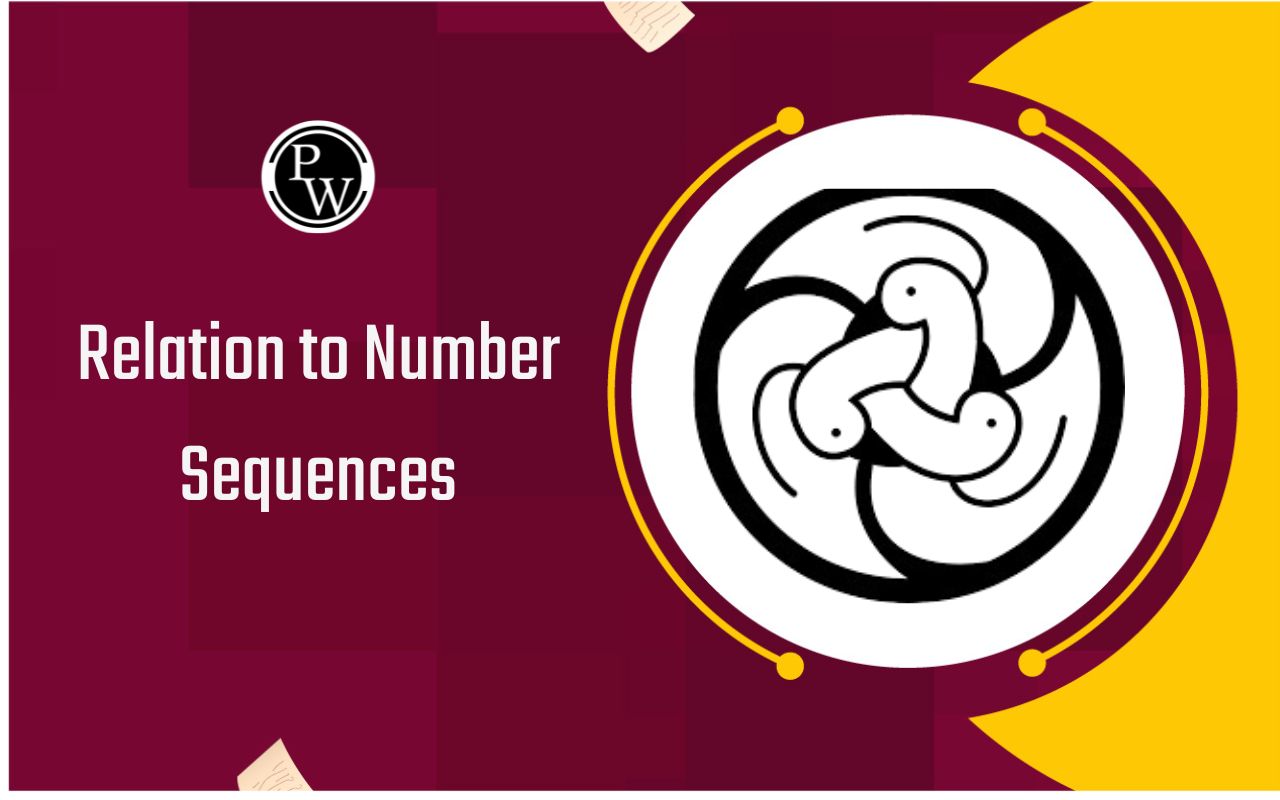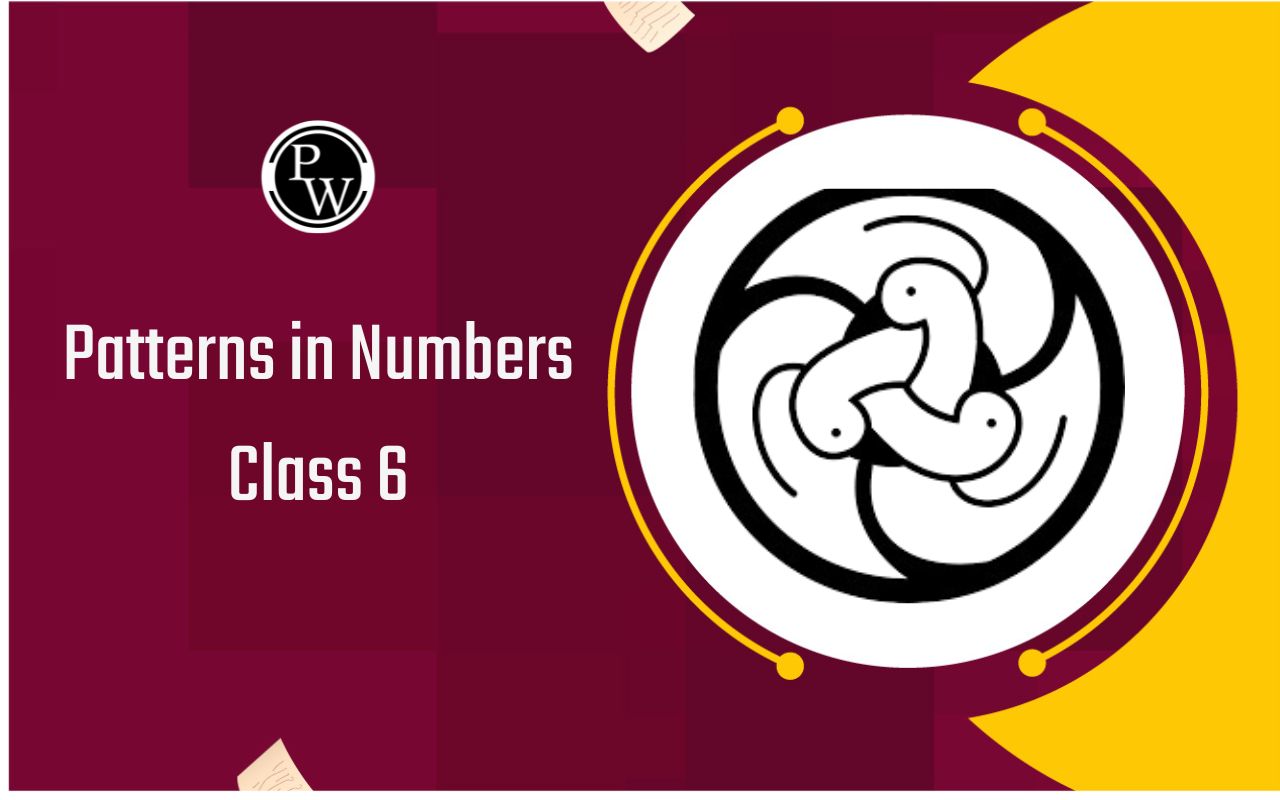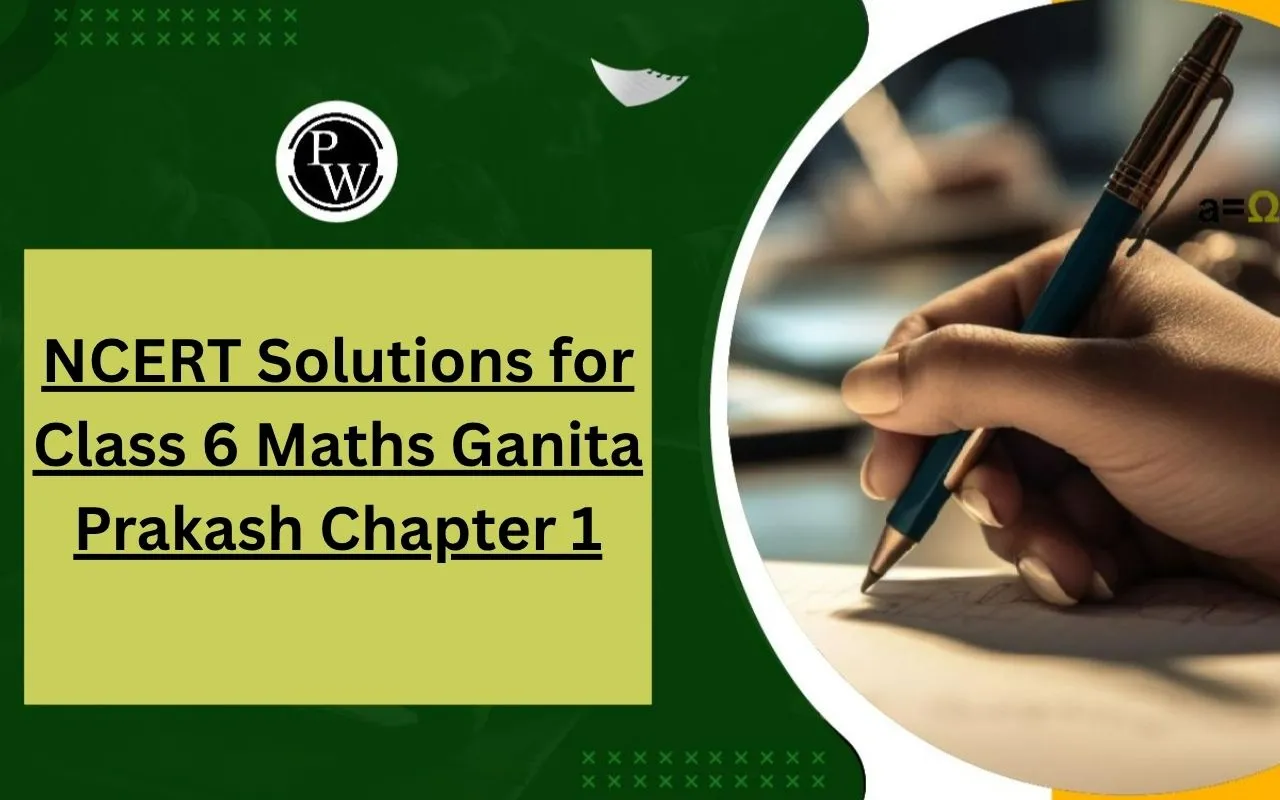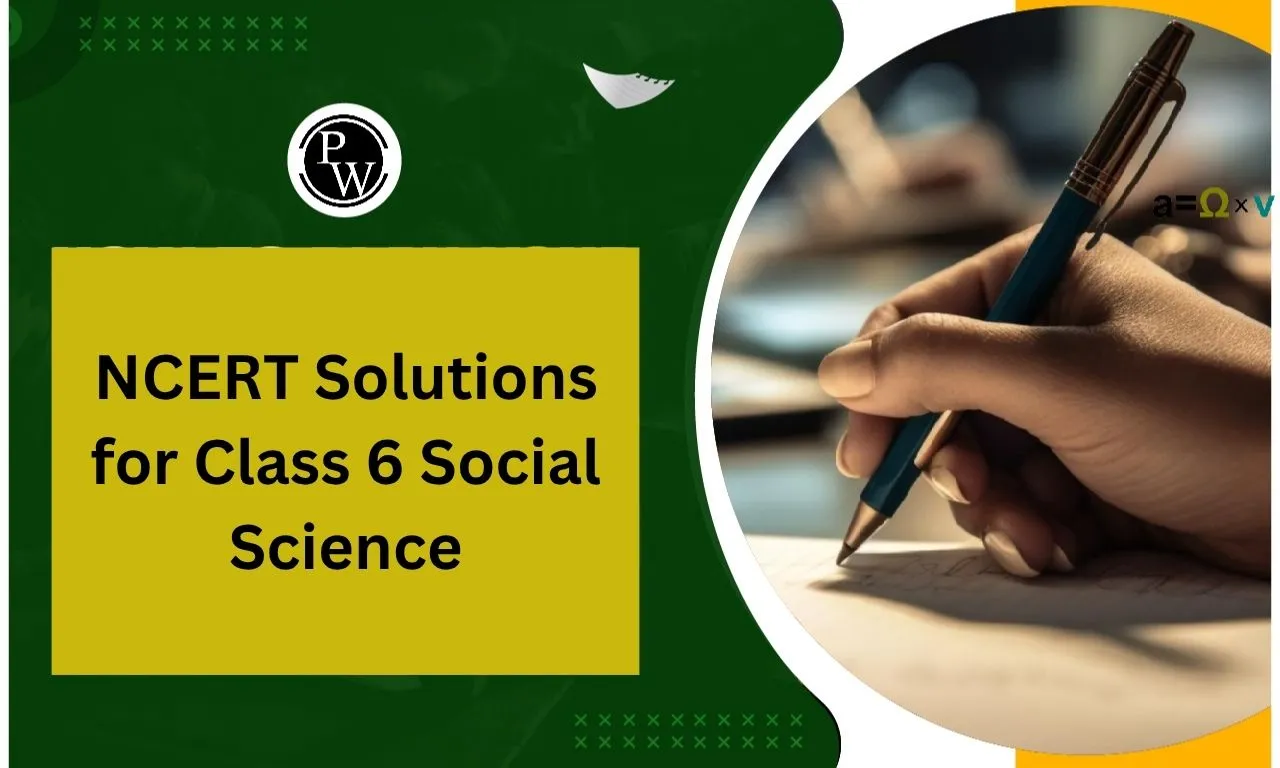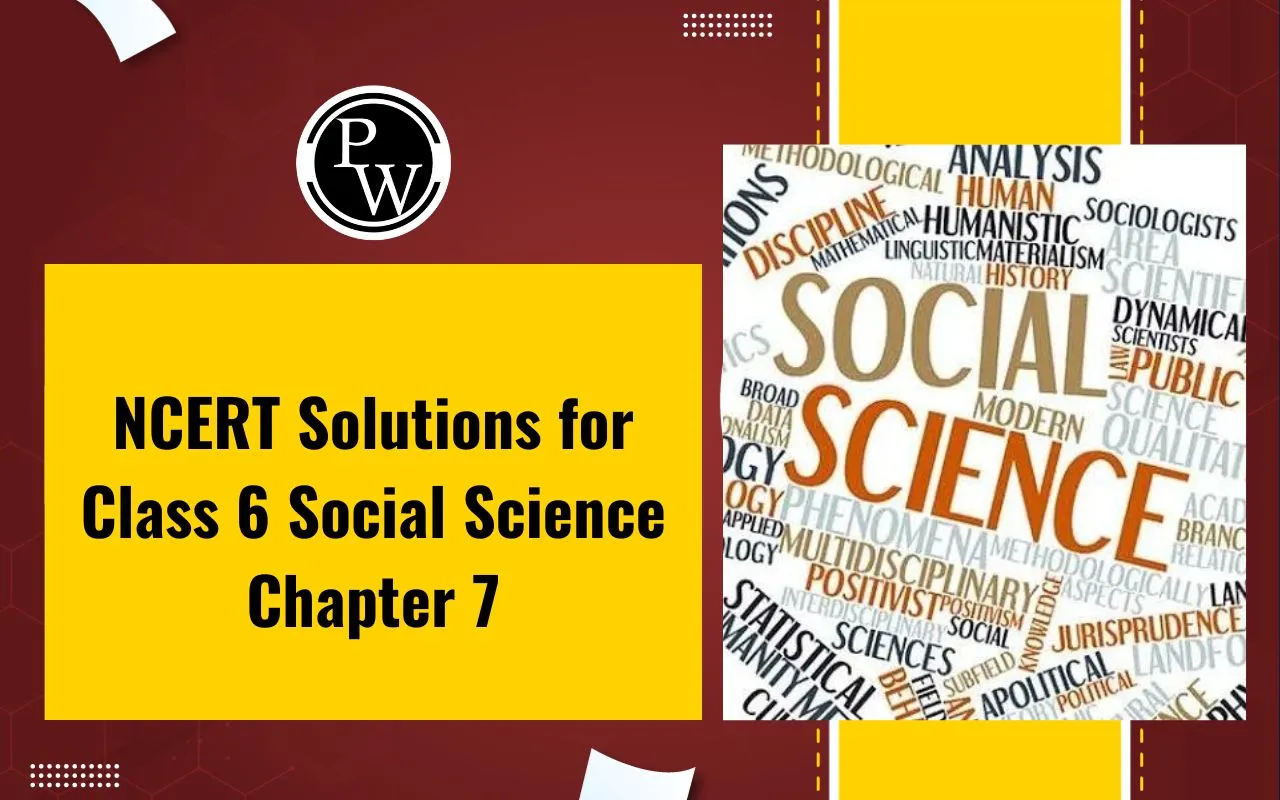
NCERT Solutions for Class 6 English Poorvi Unit 1 Chapter 2: NCERT Solutions for Class 6 English Poorvi Unit 1 Chapter 2 The Raven and the Fox offer a comprehensive understanding of this morality-based fable, an important part of the Class 6 English syllabus. The story teaches valuable lessons on flattery and wisdom, aligning well with the CBSE curriculum and exam pattern.
These solutions provide accurate, easy-to-understand answers that help students improve comprehension and writing skills. Ideal for revision and exam preparation, they ensure students are well-prepared to tackle both objective and subjective questions.
With a focus on concept clarity and language development, they support effective learning and performance in school exams.
NCERT Solutions for Class 6 English Poorvi Unit 1 Chapter 2 Introduction
NCERT Solutions for Class 6 English Poorvi Unit 1 Chapter 2 are crucial for students as they provide clear, well-structured answers to all textbook questions. These solutions help students grasp the chapter’s key themes, improve their comprehension, and develop writing skills. Aligned with the CBSE syllabus, they are especially helpful during exam preparation, ensuring students understand the concepts thoroughly.
The solutions also guide learners in framing accurate and expressive answers, building confidence for tests and class discussions. By offering explanations in simple language, they make learning easy and effective, helping students strengthen their foundation in English at an early stage.
Class 6 English Poorvi Unit 1 Chapter 2 The Raven and the Fox Solutions
Let us do these activities before we read
I. We know that frogs croak. Did you know that ravens also croak?
Yes, ravens also croak.
II. Which animal is shown to be cunning in stories?
2. fox
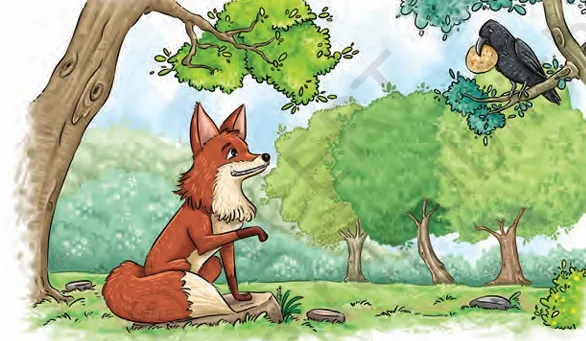
Let us discuss
I. Fill in the blanks by choosing the correct option
1. stanza 1
(i) Mr Raven is a bird.
(ii) The name of the fox is Reynard.
(iii) Mr Raven had a piece of food in his beak.
2. stanza 2
(i) The Fox calls the Raven a good-looking bird.
(ii) The Fox asks the Raven to sing.
(iii) The Raven and the Fox live in the woods.
3. stanza 3
(i) The Raven forgot that he croaked.
(ii) The Raven opened its beak to sing.
(iii) The food fell down.
4. stanza 4
(i) The Fox laughed at the Raven.
(ii) It is not wise to be too proud of oneself.
(iii) The Raven learnt a lesson.
II. Match the words in Column A with Column B
-
perched – (iv) sat on a branch
-
morsel – (i) a small piece of food
-
seek – (v) to look for something
-
pride – (iii) feeling that you are better than others
-
eyed – (ii) looked with interest at something
-
limb – (vii) branch of a tree
-
woods – (vi) a smaller area of forest with similar kind of trees
Let us think and reflect
I. Look at the pictures and number them in the order that they happen in the poem.
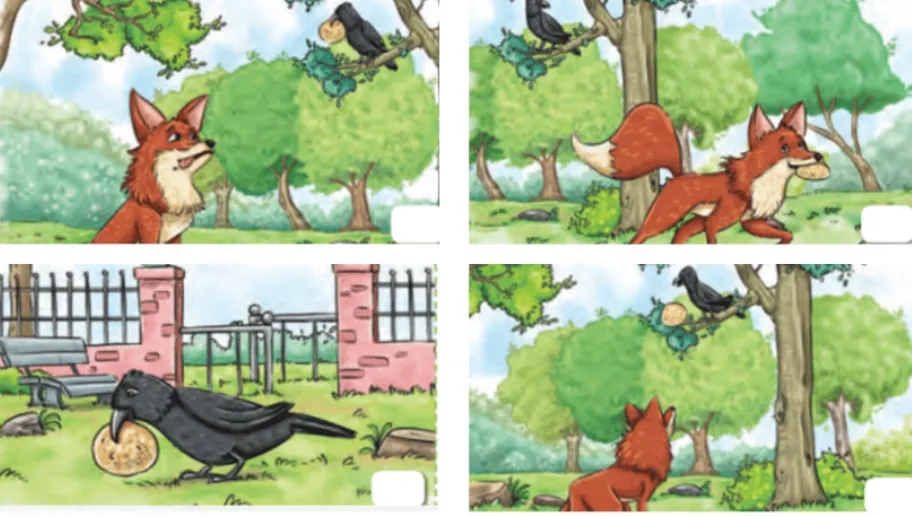
Answer
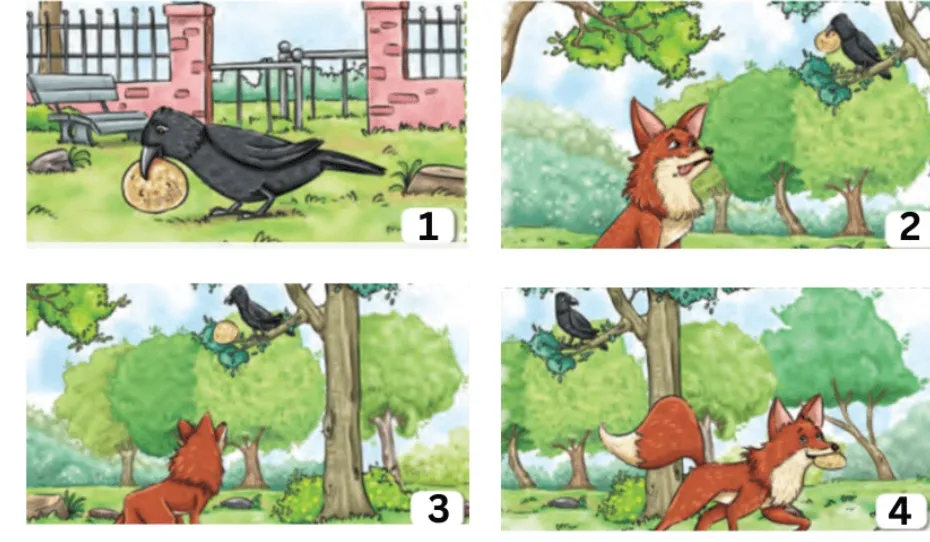
II. Read the following lines and answer the questions that follow
1. “Sir Raven, you are a handsome bird…”
(i) ‘Such feathers’ refer to A. shiny and beautiful feathers.
(ii) The birds would call the Raven ‘King’ because he looked very handsome and the Fox said if he sang well too, everyone would admire him.
(iii) The Fox calls the Raven ‘Sir’ to flatter him and make him feel proud.
2. “The Raven, who did not see the joke…”
(i) The Raven opened his beak because he wanted to sing and show off.
(ii) Fox: clever :: Raven: foolish
III. Why does the Raven forget that his voice is just a croak?
The Raven forgets because he becomes proud and wants to impress the Fox.
IV. How does Reynard make the Raven sing?
Reynard flatters the Raven by praising his looks and asking him to sing.
V. Why does Reynard say that pride is not wise?
He says so because the Raven lost his food due to his pride.
VI. Give one reason why the teaching is quite a surprise.
It is surprising because the Raven did not expect to be tricked while being praised.
VII. Imagine someone praises you too much. How would you react?
I would thank them politely but not get carried away. I would think if the praise is genuine.
Let us learn
I. Write the rhyming words from the poem

stanza 1
(i) limb – him
(ii) beak – seek
stanza 2
(i) word – bird
(ii) sing – King
stanza 3
(i) joke – croak
(ii) pride – eyed
stanza 4
(i) know – glow
(ii) unwise – surprise
II. Pick another example of alliteration from Stanza 2
“Such feathers! If you would only sing” – the /s/ sound is repeated in such, sing.

III. Choose the correct opposites and complete the table

|
Word |
Opposite |
|
perched |
flew |
|
forgot |
remembered |
|
foolish |
wise |
|
pride |
humility |
|
laughed |
cried |
|
ignore |
notice |
|
glow |
dim |
Use any four words in sentences:
-
Wise – My grandfather is very wise and gives good advice.
-
Cried – She cried when she lost her toy.
-
Remembered – I remembered to bring my notebook today.
-
Flew – The bird flew across the sky.
Let us listen
(Mark True or False)
-
True – The crow was unhappy that he lost his food.
-
True – The crow thought that his lovely feathers made him smart.
-
True – The crow wanted to tell his friends not to be proud.
Let us speak
Narration beginning sample:
This is a story about a clever fox named Reynard and Mr Raven. One day, the Raven sat on a tree with a piece of food. The Fox, wanting the food, praised the Raven’s feathers and asked him to sing...
Let us write
Sample Conversation:
Reynard: Good morning, Mr Raven! You seem to be awake so early!
(Mr Raven just nods his head)
Reynard: Oh, Mr Raven, you look so handsome today! Your feathers are shining in the sunlight.
(Mr Raven looks happy)
Reynard: If only you could sing! The birds would make you their King!
(Mr Raven opens his beak to sing and the food falls. Reynard picks it up)
Reynard: Thank you, Mr Raven! You are truly kind... and foolish!
NCERT Solutions for Class 6 English Poorvi Unit 1 Chapter 2 Question Answer PDF
Below we have provided the NCERT Solutions PDF for Class 6 English Poorvi Unit 1 Chapter 2 "The Raven and the Fox". These solutions are prepared as per the latest CBSE syllabus and are designed to help students understand the chapter better. The PDF includes all textbook questions with easy-to-understand answers, making it a useful resource for exam preparation and revision. Students can download and use it for daily practice and improved performance in English.
NCERT Solutions for Class 6 English Poorvi Unit 1 Chapter 2
Study without using the internet
Preparation Tips for NCERT Solutions for Class 6 English Poorvi Unit 1 Chapter 2
Below we have provided some preparation tips for class 6 students -
-
Read the Poem Aloud
Reading the poem aloud helps with pronunciation, rhythm, and understanding the tone and message of the poem. -
Understand the Moral
Focus on the central message: Don’t let flattery fool you. Relating the story to real-life examples makes it easier to remember. -
Underline New Words
Note down and learn new words like morsel, pride, and eyed with their meanings and use them in sentences. -
Practice Writing Answers
Write answers in your own words using the NCERT solutions for guidance. This improves comprehension and writing skills. -
Revise Rhyming Words and Alliteration
These are often tested in exams. Make a small chart of rhyming pairs and examples of alliteration from the poem.
NCERT Solutions for Class 6 English Poorvi Unit 1 Chapter 2 FAQs
What is the title of Unit 1 Chapter 2?
What is the main theme of the poem?
Who are the main characters in the poem?
What does the Fox want from the Raven?


